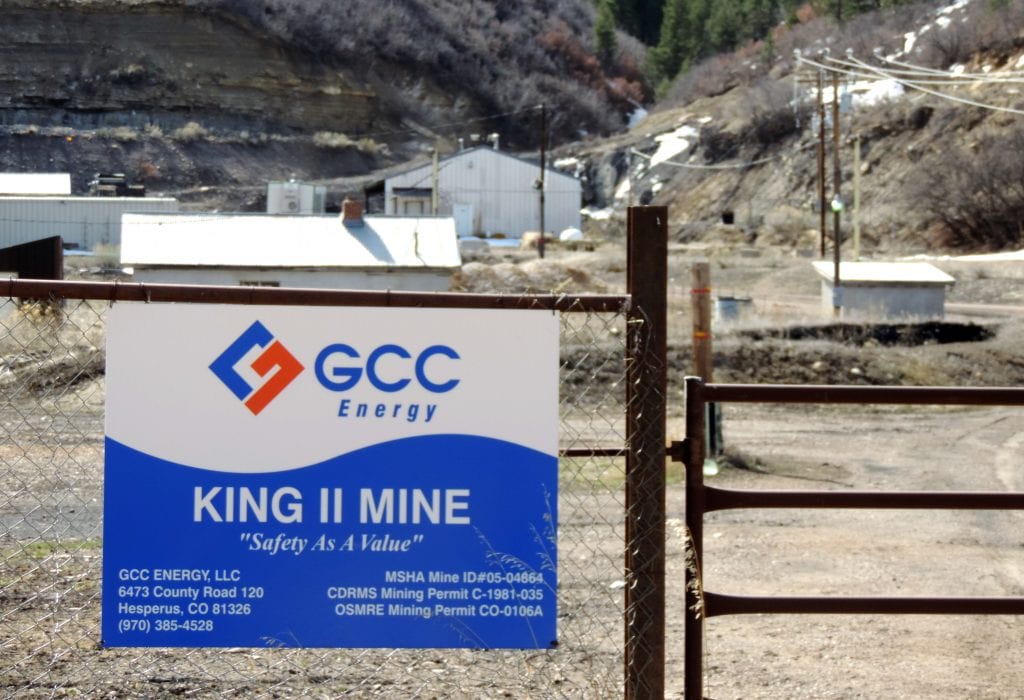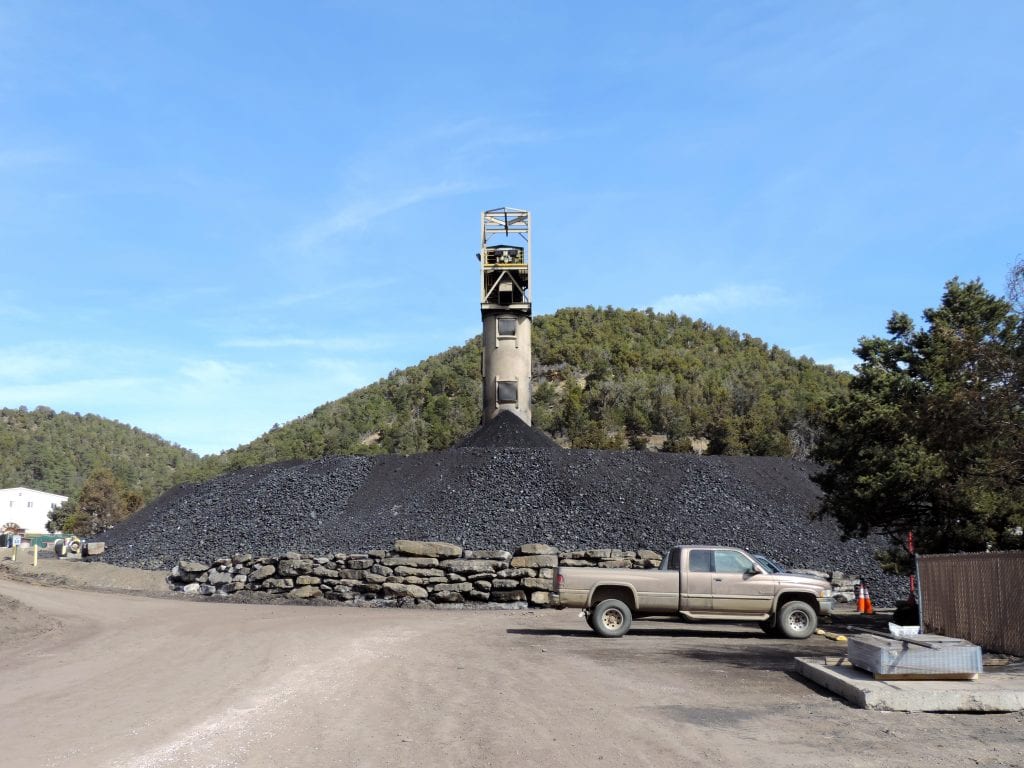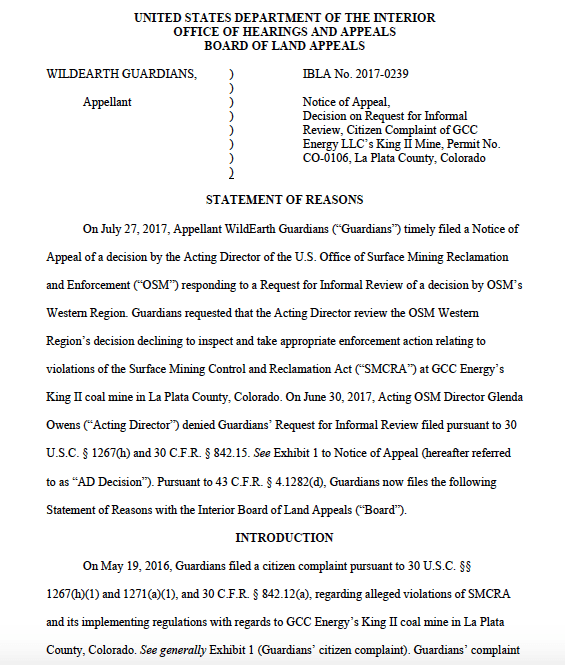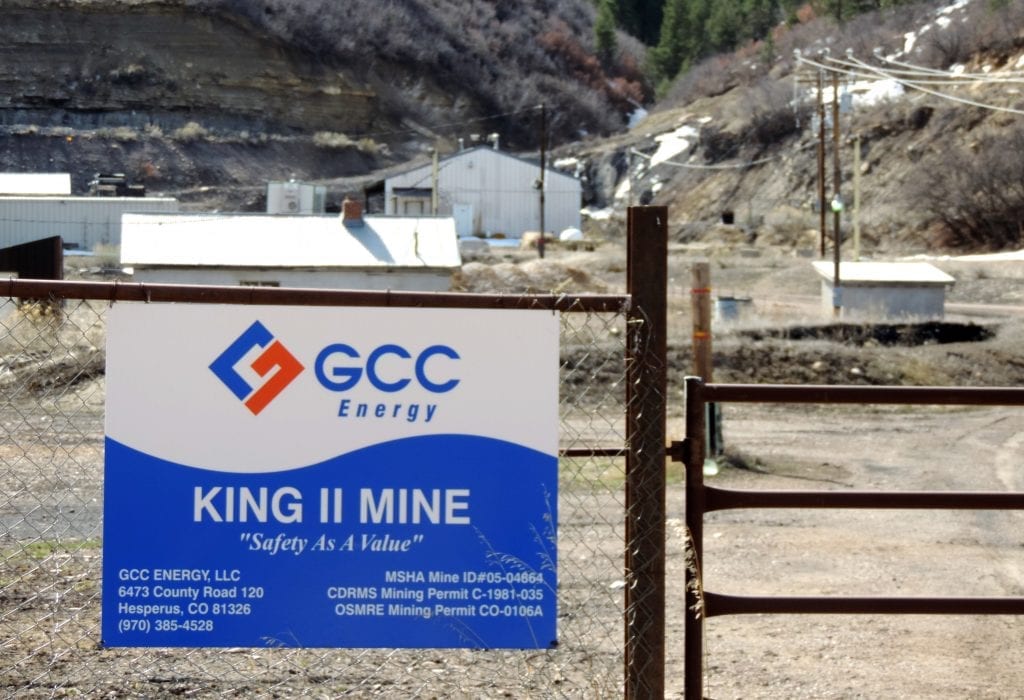
The King II coal mine in southwestern Colorado isn’t the biggest coal mine and it’s not the baddest.
But what’s unfolding at this mine right now has huge implications for coal mining throughout the American West and WildEarth Guardians is at the frontline of making it all happen.
The King II mine, located just outside of Durango, Colorado, is relatively new. Its owner, GCC Energy, first started operating the mine in 2006. In 2007, GCC (which stands for Grupo Cementos de Chihuahua) got a major approval from the U.S. Department of the Interior to mine up to 610,000 tons of coal annually from publicly owned reserves in the area.
While coal from King II is mainly burned in cement kilns owned by GCC, the fact is it’s still burned, releasing massive amounts of carbon pollution.
The King II mine has been incredibly controversial locally and things really started heating up around 2014, when GCC got approval from the State of Colorado to increase production to up to 1.3 million tons of coal annually–a twofold increase in production.
More production means more activity, more truck traffic, more noise, more air pollution, more coal dust, etc., etc. Of course, it also means more climate pollution and destruction.
Here’s the thing, though. While GCC got approval from the State of Colorado to increase its coal production, it never got approval from the U.S. Interior Department. Under federal law, that’s a problem.
Because when it comes to publicly owned coal, while states have a say in coal mine permitting, they don’t make the ultimate decision.
That decision lies with the U.S. Interior Department, which represents all Americans and ensures mining of publicly owned coal is consistent with the American public interest.
Nevertheless, with its Colorado approval and absent any federal approval, GCC has ramped up production and since 2014, has produced way more than 610,000 tons of coal every year.
Working with impacted members in the area, in 2016, WildEarth Guardians took action. In a formal citizen complaint filed with the U.S. Office of Surface Mining, the nation’s coal mining enforcement agency, we called for legal action to be taken.
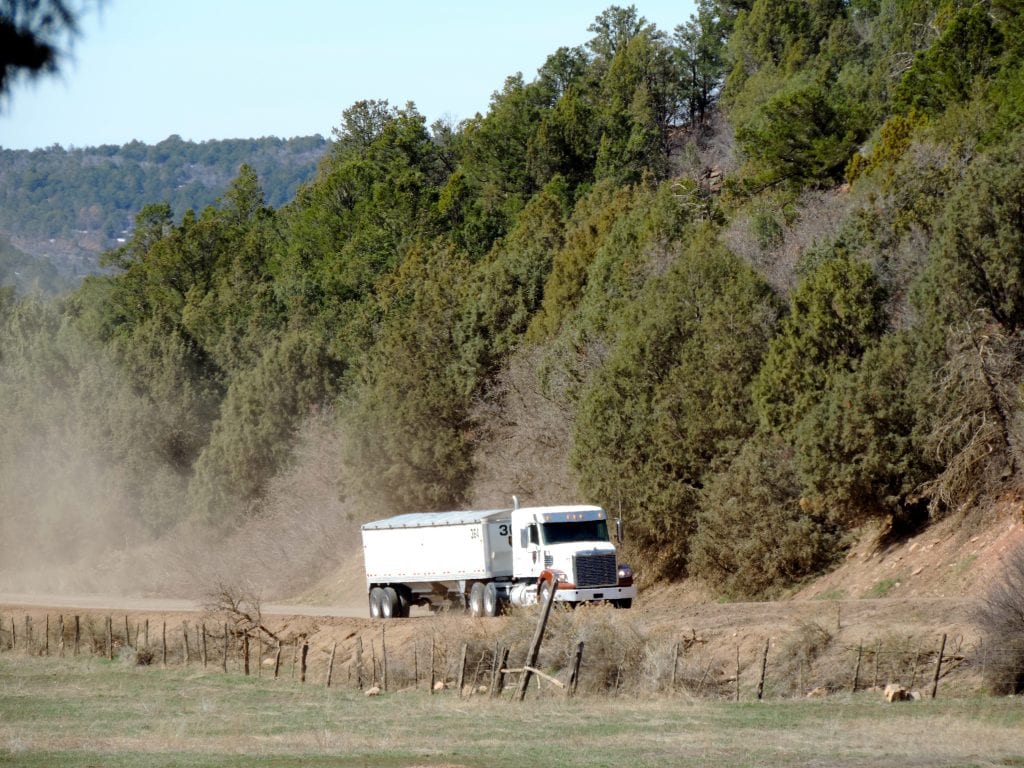
Coal from King II is hauled away on local roads by dozens of trucks daily, a huge impact upon local residents.
The complaint was straightforward. Under federal regulations, companies like GCC have to comply with their federal coal mining approval.
If they don’t, they’re subject to enforcement action under the U.S. Surface Mining Control and Reclamation Act, our federal coal mining law.
Unfortunately, the Office of Surface Mining disagreed and rejected our complaint, asserting they had no authority to enforce violations of federal mining approvals under the Surface Mining Control and Reclamation Act.
While it’s unfortunate the Office of Surface Mining turned its back on the American public at the King II mine, the reality is, the law is clear they don’t have a leg to stand on. While it may be a few months before we get this matter resolved, the reality is, we’re on track to win and ultimately hold GCC accountable.
In the meantime, the bigger story here is what a WildEarth Guardians win will mean for coal mining throughout the American West.
Most coal mined in the western U.S. is owned by all Americans and managed by the federal government, meaning it can only be mined consistent with Interior Department approvals.
Yet the fact is, mining companies throughout the American West are regularly flouting their federal mining approvals, emboldened by the fact that the Office of Surface Mining refuses to take any enforcement action.
It’s really no different than when a thief, emboldened by a lack of police presence, steps up their stealing.
While a seemingly insignificant coal mine, the issues at King II are big. A win in our appeal will open the door for more effective enforcement and accountability at coal mines throughout the American West.
In our efforts to keep coal in the ground in order to defend our climate, that will be great news.
